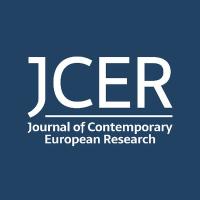Dans la même rubrique
- CEVIPOL
- FR
- Publications
- Articles
- Publiés en 2023
-
Partager cette page
Decolonising EU Trade Relations with the Global Souths?
By Camille Nessel with Antonio Salvador M. Alcazar III & Jan Orbie
ÉDITION

Abstract
That the European Union’s common commercial relations with ex-colonies and more broadly the ‘tiers monde’ now rest variously on benevolence, depoliticised practices, equal partnerships and values fuels reigning foundational myths about the EU in global politics. Efforts to disrupt these received presuppositions have come from interpretivist, postcolonial, post-development, post-structuralist and other heterodox research traditions. Yet the academy has been largely impervious to knowledges that genuinely question and subvert, in both theory and praxis, Eurocentric ways of seeing the world and understanding the EU as a ‘benevolent’ trade actor on the world stage. In dialogue with existing heterodox approaches, this article asks how we might puncture the coloniality of dominant knowledge regimes about EU trade relations vis-à-vis the global souths, i.e., peoples and places that the EU deems peripheral and, as such, in need of trade-related interventions in the name of development. To this end, we propose different ‘subject-positions’ with which to unthink and rethink our ways of knowing EU trade policy and the Eurocentrism lurking behind it by turning to decolonial thought. We borrow heavily from the work of Meera Sabaratnam whose ‘decolonising strategies’ in studying world politics we attempt to exemplify through a critical interrogation of the canonical scholarship around three distinct ‘policy worlds’ of EU external trade relations: Economic Partnership Agreements (EPAs), Generalised Scheme of Preferences (GSP) and Trade and Sustainable Development (TSD) chapters in free trade agreements. Finally, we think reflexively about the decolonial option and the ruptures it triggers as to what EU trade policy is and the colonial logics sustaining ‘normative’ and ‘geopolitical’ narratives on/by the EU as a trade power.
